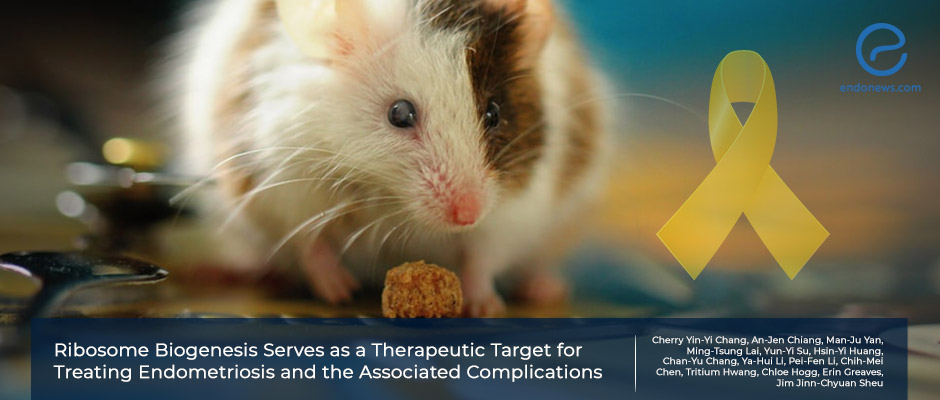Potential New Approach to Treat Endometriosis
May 17, 2022
Using a mouse model of endometriosis, researchers found a new approach that could be promising in treating the disease.
Key Points
Highlights:
- Blocking ribosomal biogenesis reduces the frequency of endometriosis and the number of lesions, suppresses inflammation, and leads to pain relief in a mouse model of the disease.
Importance:
- Inhibition of ribosome biogenesis could be a promising therapeutic approach in patients with endometriosis.
What's done here:
- Researchers generated a mouse model of endometriosis and tested three different drugs blocking ribosome biogenesis.
Key results:
- The average number of endometrial lesions was significantly reduced in treated animals compared to controls.
- Disease frequency was reduced in treated animals compared to controls.
- The population of small peritoneal macrophages and neutrophils was reduced and the ratio of large versus small macrophages was increased in treated animals.
- The lesions in treated animals had a lower density of nerve fibers.
Limitations:
This is a study conducted on mice and more research is needed before any of the findings can be translated into humans.
Lay Summary
Inhibiting ribosome biogenesis could be a potential therapeutic approach for endometriosis according to a new study published in the scientific journal Biomedicines.
Ribosome biogenesis plays a key role in protein homeostasis during cell growth and division. Previous research has shown that it is upregulated during endometriosis progression and malignant transition.
Based on this knowledge, a team of researchers led by Dr. Jim Jinn-Chyuan Sheu hypothesized that inhibiting ribosome biogenesis could be effective for treating the disease and complications associated with it.
To test their hypothesis, the researchers generated a mouse model of endometriosis. They then treated the animals with three different drugs that block ribosome biogenesis.
They found that the average number of lesions was significantly reduced in animals treated with an agent blocking ribosome biogenesis compared to those who were not treated. Disease frequency was also reduced in treated animals compared to the others.
On a more thorough analysis, the researchers found that the populations of small peritoneal macrophage and neutrophils were reduced while the large versus small macrophage ratio was increased. This suggests that inflammation was suppressed.
Finally, the researchers found that the lesions in mice that were treated with drugs inhibiting ribosome biogenesis had a lower density of nerve fibers. This is in accordance with the findings of behavioral studies suggesting pain relief.
“Our study, therefore, suggested ribosome biogenesis as a potential therapeutic target for treating endometriosis,” the researchers wrote.
Research Source: https://pubmed.ncbi.nlm.nih.gov/35052864/
ribosomal biogenesis mouse model inflammation endometrial lesions pain relief

